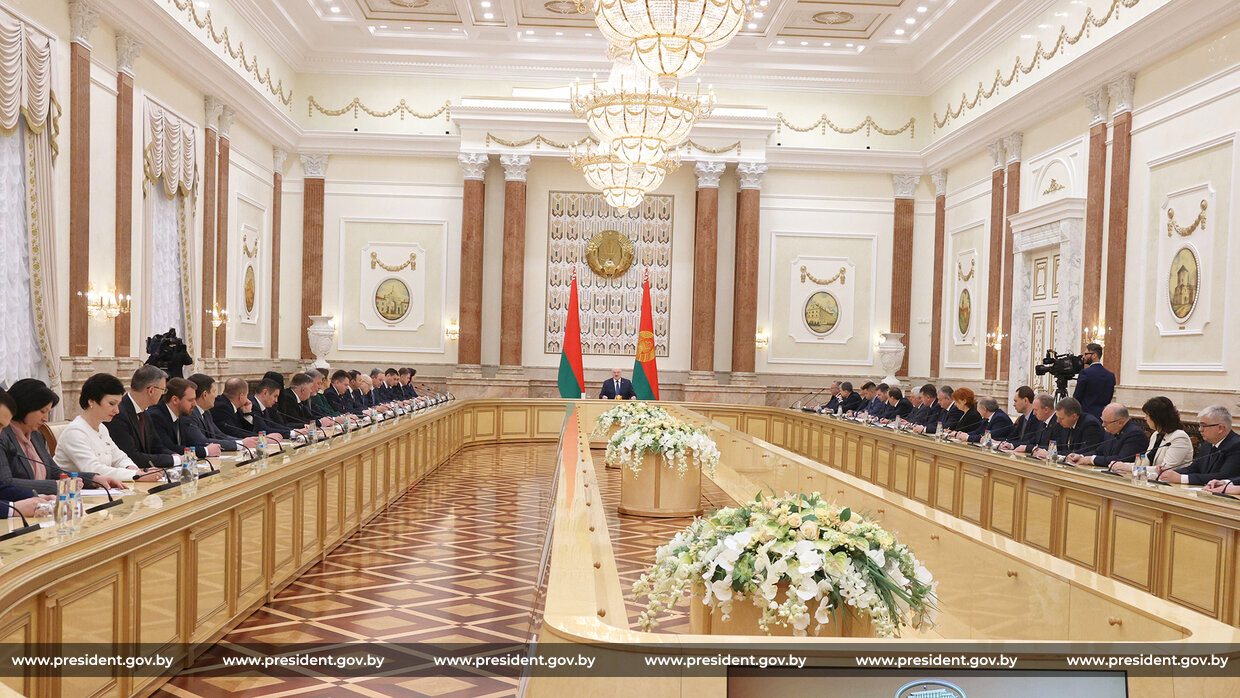Lukashenko to university rectors: struggle for talented students needed
During today’s meeting with members of the Republican Council of Rectors of Higher Education Institutions, President Aleksandr Lukashenko wondered whether the Belarusian graduates’ desire to get higher education abroad is a fashion or an objective choice
“It is necessary to understand that those trained at our higher education institutions are the future elite of our state,” Aleksandr Lukashenko stressed. “How are you struggling for them? This is a straightforward question I would like to hear a straightforward answer to. Of course, these people can come back, but their consciousness will be completely inverted. Why are the Belarusian State University, the Belarusian National Technical University, higher medical institutions and the Belarusian State University of Informatics and Radioelectronics not a priority for our talented student to enrol? Is there such a problem or not? Opinion polls show that there is. How do you work with schools? How do you present yourself to our school leavers? How do you interact with enterprises that should act as these young people’s employers?”
The Head of State also asked those present to explain the reasons for a shortage of personnel in demanded specialties, “As I’m being reported, targeted training does not solve this problem. Why have we established so many specialised classes if less than 30 percent of their graduates start working in jobs they have been trained for?”
The President also drew attention to the training programmes, “Do you update them in a timely manner? Do you implement the latest technologies in training? As far as I know, almost half of our students are dissatisfied with the quality of education at present. We have questioned both undergraduates and first-year students. What are you being engaged into? I receive reports that you are not keeping up with technology, and young specialists have to complete their studies already in the workplace. Actually, we require customers to guarantee the first employment for our graduates, but who needs such ‘specialists’. On the other hand, if specialists do not meet the customers’ needs, then how do these customers personally participate in the training process? Why don't they come to universities or invite future specialists to their assembly lines? Why don't company representatives come to students themselves? These are the questions for all: rectors, relevant ministries and, above all, the Government.”




